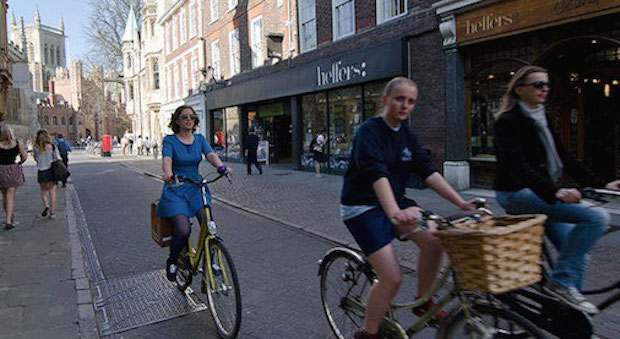When writing a novel, there comes a time, in the process of gestation and planning, when other books are required. It is almost as though, Middlemarch-like, your little attempt at writing cannot be separated from what others have written. The world is a great web. Books speak to books. They cry out, call, whisper. I find it very strange. When writing a novel, when so much is held in your heart and your head, certain books quietly announce themselves. Usually, I have found, that happens in bookshops – those rapidly-diminishing repositories of paper and card and ink.
It is not the same online, on the electronic web. Yes, I know that Penguin Random House has just publicised plans to build platforms that will enable readers to share their thoughts on good books. And I know that Amazon is like a large, single-breasted lover, always on call, forever willing to suckle my need for books. She – and here I do the intrusive, algorithmic computing software a personifying favour – faithfully makes recommendations based on previous purchases and even on simple searches. And with a quick motion, we click, she and I. And a few hours/days later, the offspring of our union appears in neat cardboard nappies. Books simply drop through the door, delivered by the stork it would seem.
But it is not the same as standing in a bookshop. Many people have written about that sense of tingling serendipity. I have experienced it many times.
Like when I wrote my first novel. There I was in Heffers bookshop, Cambridge, drifting inevitably downstairs, to where they kept their Africa section. There they were: amid all the others, two books that would profoundly influence my writing of Held Up, a literary novel about the new South Africa. Jodie Bieber’s photo-essay collection transported me instantly from the street just down from St John’s College and a short distance from the King’s Parade to the interior of shacks in Soweto.
I was staring at precisely what I had struggled to imagine. In my hands I held the gas bottle and the car battery used to power cookers and radios; I could reach out and touch the corrugated walls and compelling details of vivid, ramshackle lives. There was a map. I was able to locate my protagonist precisely in a place I had tried previously to hover above on Google Earth. It took a book. A book in a bookshop in Cambridge plunged me more completely into my homeland of South Africa than I ever would have thought possible. And there was R.W. Johnson’s magisterial South Africa’s Brave New World: The Beloved Country Post-Apartheid. My plot fell into place. The socio-historical and political complexities of the narrative I was trying to tell were thrown into relief. Thanks to those books, I was brushing past fur coats into Narnia – or, in this case, Soweto. I had found South Africa on the wooden shelves of a well-stocked shop.
The same serendipity struck when I was actively searching for an epigraph to illuminate my second novel, The Crack. Heffers again. This time upstairs. Susan Sontag winked at me and there was her Illness as Metaphor. Ditto for Emily Dickinson. I already had a few well-thumbed collections of her poetry, but it was the seemingly stray selection of another anthology that offered up the perfect poem, the one that declared ‘To fill a Gap/ Insert the Thing that caused it – ‘. It was the stylistic realisation of all that I was trying to achieve as I brought to life the febrile, delicate character and fractured perceptions of Janet Snyman, wife of an Afrikaans police interrogator in The Crack.
And it has happened again as I am busy with another book. The exact text I needed on servants in 1930s Britain as well as a multi-faceted view of English life between the world wars (in neat chapters, perfect for a non-historian like me). And as I was heading out of the coffee shop of my local book store that fortuitous day, I happened to see a display featuring books on gardens and gardening. And, although I had not anticipated needing anything on English country gardens just yet, here was a book that offered a wealth of pictures, as well as some commentary entirely germane to my own purpose. Yes, here were handy quotations linking gardening to narrative technique: the essence of my metafictional aspirations. And all that despite having scoured the internet, succumbing to the charms of my passionate, energetic Amazon. Despite all the money I have spent online, the real luminaries have been more subtle and surprising, seemingly brought to me by the physical proximity of ‘real’ books, in ‘real’ bookshops.
Will I dump my rather clingy Amazonian lover sometime soon? No, of course not. Will I hope and pray that bookshops continue to survive, somehow? You bet I will. My life and my writing would be much, much poorer without a good bookshop somewhere near me.
Christopher Radmann is the author of The Crack, which is published by Oneworld Publications on 4 May (Hardback, £14.99)






Comments